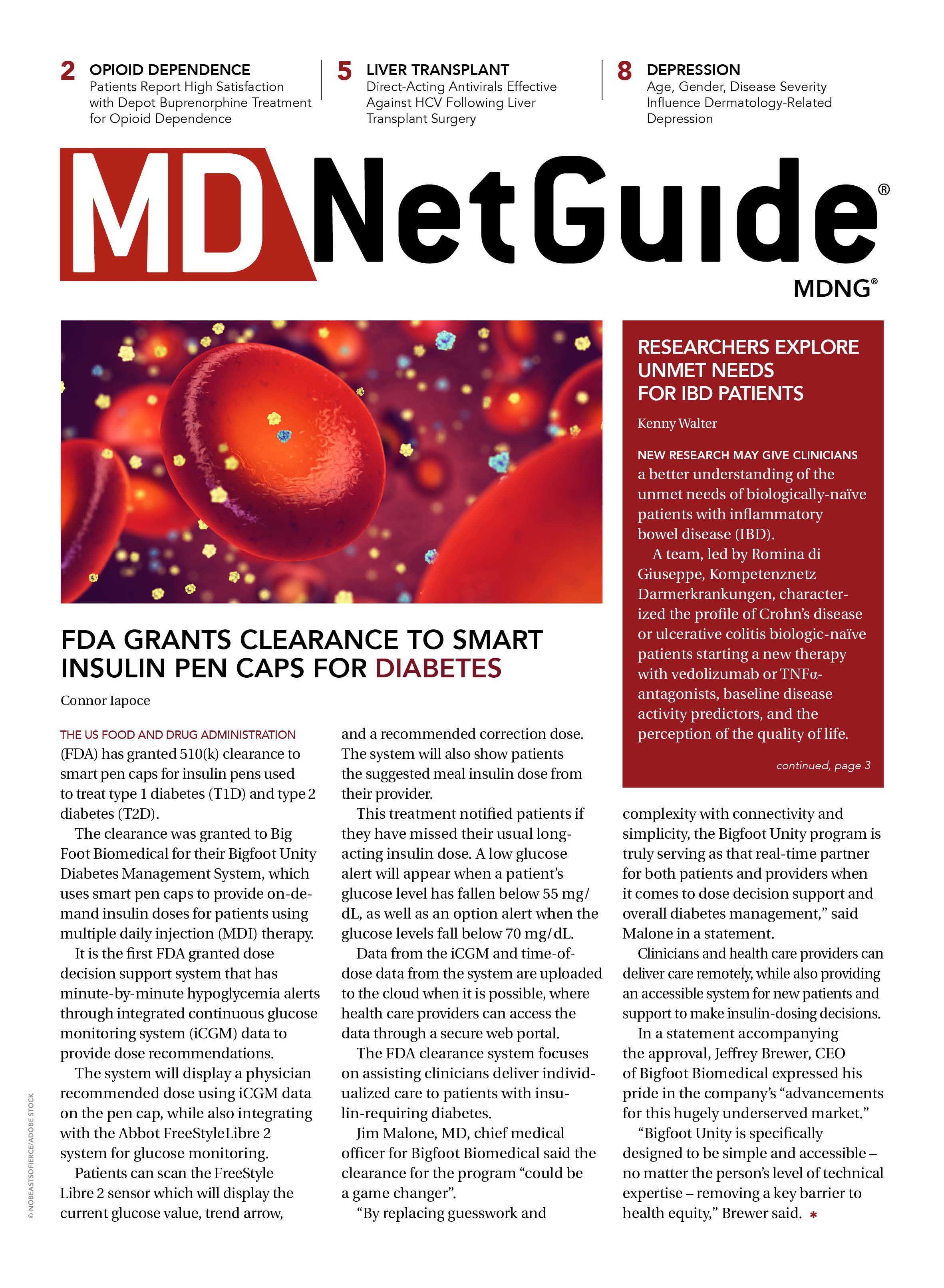Publication
Article
MD Net Guide Newsletter
Researchers Explore Unmet Needs for IBD Patients
Author(s):
The presence of extra-intestinal manifestations in biologic-naïve anti-TNF patients with Crohn’s disease was a predictor of disease severity.

New research may give clinicians a better understanding of the unmet needs of biologically-naïve patients with inflammatory bowel disease (IBD).
A team, led by Romina di Giuseppe, Kompetenznetz Darmerkrankungen, characterized the profile of Crohn’s disease or ulcerative colitis biologic-naïve patients starting a new therapy with vedolizumab or TNFα-antagonists, baseline disease activity predictors, and the perception of the quality of life.
In the VEDOIBD-Study, the researchers compared vedolizumab with other biologics as induction and maintenance therapies for Crohn’s disease (n = 627) and ulcerative colitis (n = 546) enrolled from IBD-experienced centers in Germany.
Biologic-Naïve Patients
For biologic-naïve patients—vedolizumab (n = 397) and anti-TNF (n = 359)—the researchers analyzed disease severity and perception of quality of life predictors with logistic regression.
A first biological therapy with vedolizumab was considered for older Crohn’s disease when compared to biologicals-naïve anti-TNF patients, including those with a less complicated, but longer disease course and a history of comorbidities. There were no differences in unmet needs observed among the ulcerative colitis patient group.
The presence of extra-intestinal manifestations in biologic-naïve anti-TNF patients with Crohn’s disease (OR, 3.83; 95% CI, 1.69-8.68), as well as both biologic-naïve patient groups with ulcerative colitis, stool frequency (OR, 2.00; 95% CI, 1.25–3.19); OR, 1.82; 95% CI, 1.10–3.02), respectively) and rectal bleeding (OR, 2.24; 95% CI, 1.20–4.18); OR, 1.92; 95% CI, 1.19–3.11), respectively) emerged as the most important predictors of disease severity. This was significantly linked to a worse perception of quality of life.
“This study highlights the existence of unmet medical needs of patients with CD or UC, for whom a new biological therapy is planned as part of the VEDOIBD-Study, which considerably impacts their HRQoL,” the authors wrote.
Infliximab
A recent study found that maintaining ulcerative colitis (UC) remission was significantly more common in patients who continued treatment with infliximab, compared to those who discontinued treatment.
The use of anti-tumor necrosis factor (TNF) agents is common in the treatment of refractory UC, but the long-term use of anti-TNF therapy can increase the risk of malignancy or infection.
No previous study trial has evaluated the safety of anti-TNF agent discontinuation in patients with UC in remission.
Of the 122 patients screened, a total of 95 were randomly assigned to the infliximab-continued group (n = 48) and the infliximab-discontinued group (n = 47). The final analysis included 92 patients, with 46 in each group.
In the infliximab-continued group, 37 of 46 patients (80.4%) were in remission at week 48.
In the infliximab-discontinued group, 25 of 46 patients (54.3%) were in remission at week 48.
Adverse events were found in 8 (17%) patients in the infliximab-continued group, including a patient who experienced an infusion reaction. This is compared to 6 (13%) in the infliximab-discontinued group, with 2 patients experiencing psoriatic skin lesions.
The study, “Profile of patients with inflammatory bowel disease in conjunction with unmet needs and decision-making for choosing a new biologic therapy: a baseline analysis of the VEDOIBD-Study,” was published online in the International Journal of Colorectal Disease.






